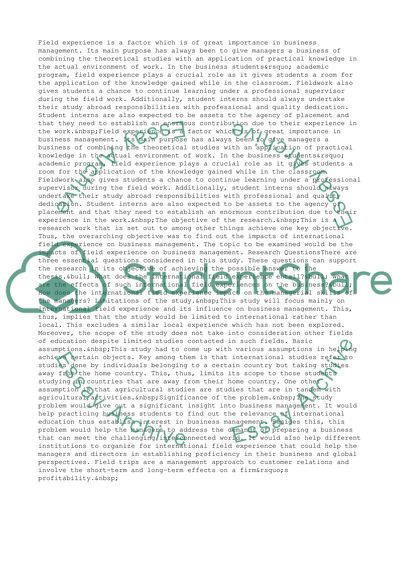Cite this document
(Impact of International Field Experience on Business Management Assignment, n.d.)
Impact of International Field Experience on Business Management Assignment. Retrieved from https://studentshare.org/management/1464701-business-research-project
Impact of International Field Experience on Business Management Assignment. Retrieved from https://studentshare.org/management/1464701-business-research-project
(Impact of International Field Experience on Business Management Assignment)
Impact of International Field Experience on Business Management Assignment. https://studentshare.org/management/1464701-business-research-project.
Impact of International Field Experience on Business Management Assignment. https://studentshare.org/management/1464701-business-research-project.
“Impact of International Field Experience on Business Management Assignment”, n.d. https://studentshare.org/management/1464701-business-research-project.


